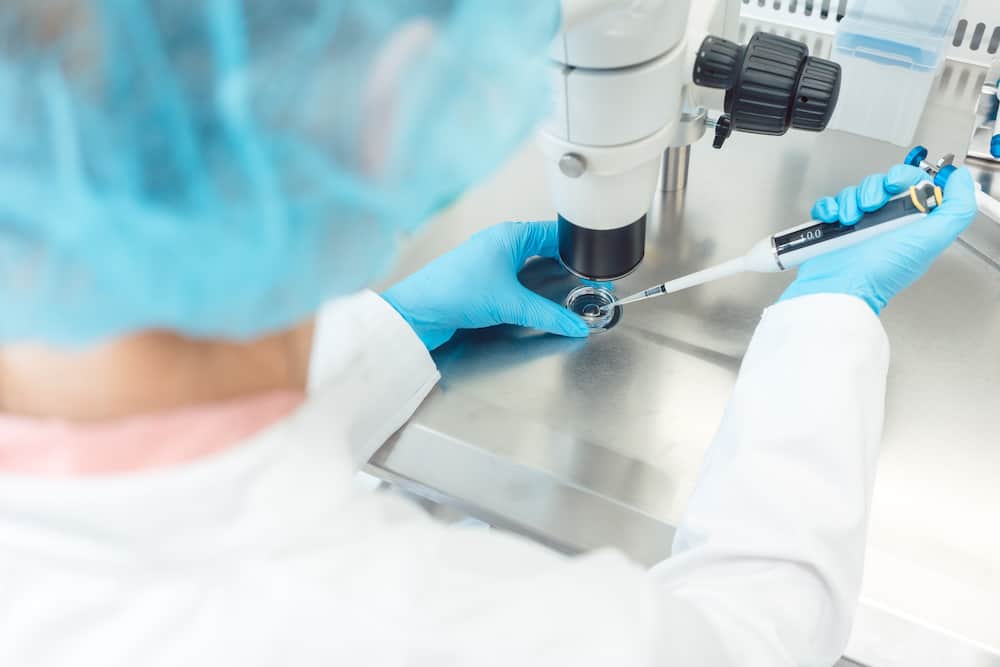In-Vitro Fertilization (IVF) can help couples struggling with fertility finally achieve their baby dreams. At the same time, it can also ensure the implantation of a healthy embryo.
In fact, about 24% of the general population may carry certain genetic defects, which may lead to genetic disorders in their offspring. With Preimplantation Genetic Diagnosis (PGD), you can identify these genetic defects in embryos before pregnancy. So, let’s take a closer look at this topic. What is PGD exactly? What’s the difference between PGD and PGS? And how does it work exactly?
What is PGD?
PGD is testing done to determine if there are genetic defects present in the embryo prior to implantation. Specifically, it helps parents-to-be and couples determine if their potential offspring are at risk of developing Mendelian disorders, structural chromosome abnormalities, or mitochondrial disorder.
The process involves the removal of one or two cells via a biopsy of the embryo, typically at day 3 of development or when there are 6-10 cells. So, what exactly is the difference between PGD and PGS (Preimplantation Genetic Screening)?
PGD vs PGS
Inevitably, there are various ways to perform preimplantation genetic testing. PGS, in contrast to PGD, solely looks at chromosomal abnormalities. In fact, chromosomal abnormalities are responsible for many failed implantations involved in IVF, which is why many soon-to-be parents opt for this testing.
How Does PGD work?
As previously mentioned, PGD involves a biopsy of one or two cells from the embryo, which has not yet been implanted in the uterus in the IVF process. The genetic (DNA) part of these cells is then tested for genetic defects. In turn, this ensures a healthy and unaffected embryo gets inserted into the uterus, which can increase the odds of a successful pregnancy.
PGD and IVF
PGD and IVF go hand-in-hand. In fact, PGD is only performed through the IVF process. In many ways, a more appropriate name for PGD would be in vitro genetic testing. At the same time, when you are going through IVF cycles, you don’t necessarily have to have PGD performed, unless you or your partner have a high risk of genetic disorders or defects.
Is PGD Safe?
By now, you may wonder if there are any significant preimplantation genetic diagnosis risks. When it comes down to it, PGD is very safe. Countless babies have been born after PGD with normal growth and development and no other issues.
At the same time, some research suggests that babies born after PGD may potentially face a higher risk of weight gain and memory decline. Yet, these studies need more solid information to back them up. With the current scientific data, there are no major risks.
Advantages and Disadvantages of Embryo Screening
Undeniably, procedures, such as PGD, come with advantages and disadvantages. So, when it comes to genetic embryo screening, what are some of the common pros and cons? What should you know?
Advantages of Embryo Screening
Benefits of having embryo screening, such as PGD, performed include:
- Enhanced embryo selection
- The potential for gender selection
- Prevention of genetic defects and disorders
- Optimization for a successful pregnancy
- Faster route to pregnancy
- Reduced uncertainty for the parents.
Disadvantages of Embryo Screening
The disadvantages of embryo screening, like PGD, may include:
- The preimplantation genetic diagnosis cost (this can range between $4000-$10000)
- The fact that it doesn’t guarantee there aren’t any genetic abnormalities
- The possibility of damage to the embryo (At ELITE IVF, we take all precautions to prevent this from happening).
PGD Success Rates
So, what are the actual chances that PGD will work for you? On average, PGD success rates, meaning PGD leads to a healthy embryo then pregnancy, are around 1 in 2, or 50%. It’s worth noting that this is assuming a patient is using her own eggs and not an egg donor.
Who Should Consider PGD?
Individuals and couples who consider PGD include:
- Individuals or couples who are carriers of a serious autosomal condition
- Individuals or couples with inherited genetic or chromosomal disorders
- Individuals or couples with a family history of genetic disorders
- Individuals or couples who already have a child with a genetic disorder
- Individuals or couples who have previously terminated a pregnancy due to a serious genetic condition.
At ELITE IVF, we strive to understand each individual or couples’ needs. Our agency understands the complexity that comes with each infertility journey. With PGD and IVF, we strive to cater to these unique needs and each of our clinics has a PGD lab on site ensuring that you get the quickest and best results possible. We are here to help you take steps toward making your baby dreams come true.
When you’re ready to begin your fertility journey, contact ELITE IVF. When you partner with us, you know you’re working with an expert team and truly cares.


